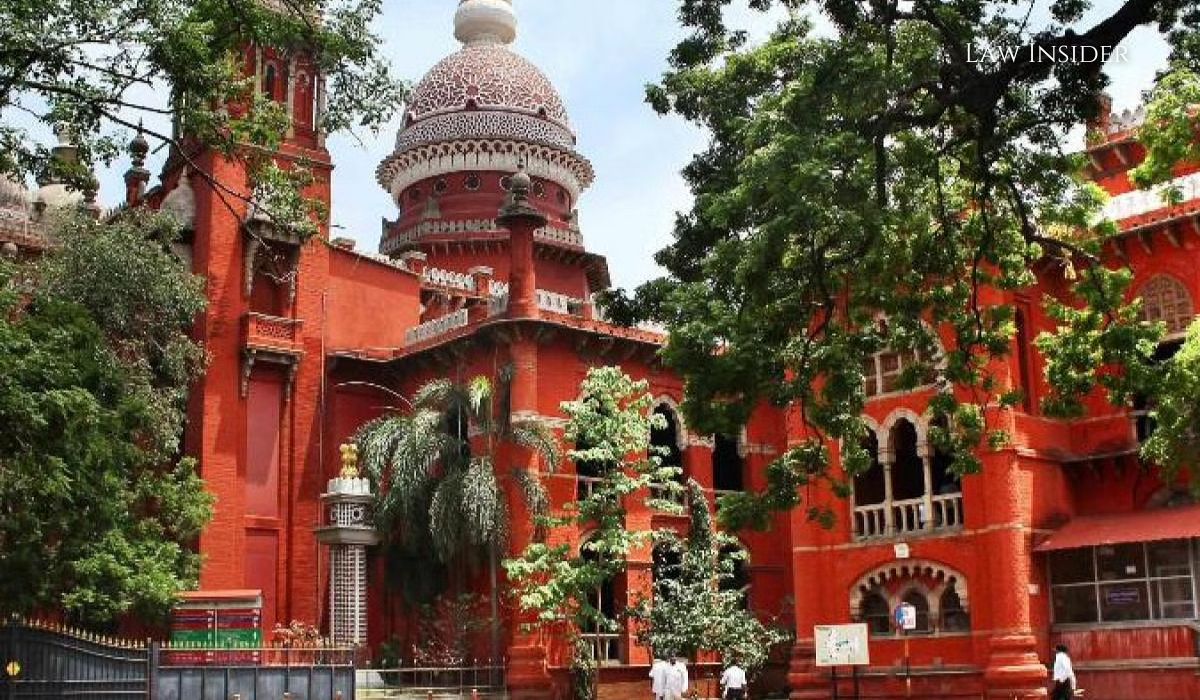Savvy Thakur
Published on: November 1, 2022 at 20:50 IST
The practice of receiving capitation fees in exchange for admissions was condemned on Monday by the Madras High Court.
The practice of receiving capitation fees is against the Tamil Nadu Educational Institutions (Prohibition of Collection of Capitation Fee) Act, 1992, the bench of Justices R. Mahadevan and Mohammed Shaffiq ruled.
Therefore, there can be no doubt at all that education will never be a business or a trade, and those working in education will be required to adhere to this guiding principle on a consistent basis.
The collection of capitation fees, on the other hand, as a prerequisite for admission to educational institutions, is an undeniable reality that is staring us in the face.
The Income Tax Department had filed appeals to the court challenging the single judge’s order granting tax exemption to a group of charitable organizations.
The current appeals raise the double issue of blatantly violating the Capitation Fee Act and seeking exemption under Sections 11, 12AA, and 80G in order to capitalize on their own illegal act.
The court noted that, despite the fact that educational institution income was exempt from taxation under Section 10(23C), the benefit could only be used by the institutions exclusively for the intended purpose.
The court examined the sworn statements, which clearly demonstrated that the donations were paid voluntarily, despite the institutions’ claims that they were.
The court noted that the college’s strategy was to collect the capitation fee from the parents indirectly by having their relatives or friends transfer it to one of the sister trusts, where it would be deposited into the institution’s fund.
The sister trusts also claimed tax exemption through this procedure by claiming that the payments were for “charitable purposes.”
According to the court, the fact that a lengthy and indirect route was used to get the capitation fee to the institution cannot change the payment’s nature from an illegal capitation fee to a voluntary contribution or donation.
According to the court, a payment could not be considered a “voluntary contribution” for purposes of claiming tax exemption under Sections 11 and 12 of the Act unless it was made free of charge and without consideration.
By claiming that the money was used for the institution’s purposes, the Tribunal and the first Appellate Authority had granted tax exemption in error.
As a result, the court reversed the tribunal and appellate court’s findings and instructed the Assessing Authority to proceed based on the tax assessment.
The court also instructed the authorities to disregard the institutes’ charitable status and revoke their registration certificates under Section 12A.
Web Portal Development
The court lamented that, despite state laws and precedents penalizing capitation fee collection, the threat posed by capitation fee could not be reduced. The court also said that privatization had helped collect capitation fees as well.
As a result, the court suggested that the state establish a web portal through which students, their parents, or anyone else with first-hand information could provide information about private institutions charging capitation fees.
The National Informatics Centre and the Information Technology and Digital Services Department may be responsible for maintaining this web portal.
Additionally, the state was instructed to promote the portal extensively in both English and vernacular newspapers.
The court also said that parents should be given pamphlets with this information when they are admitted.

